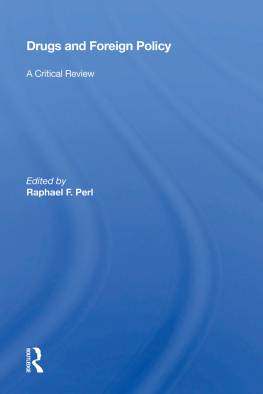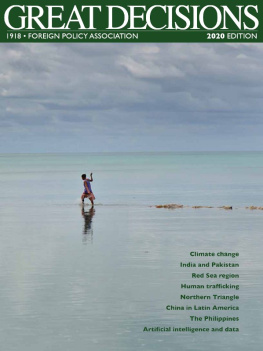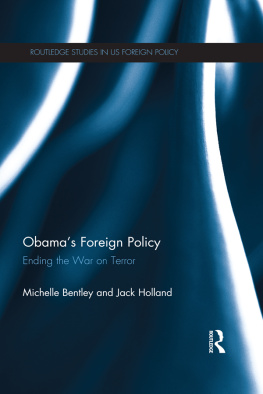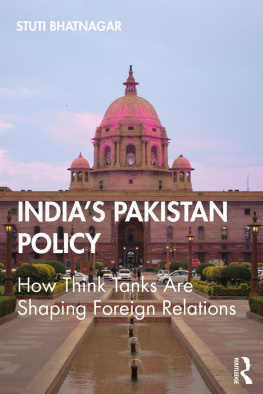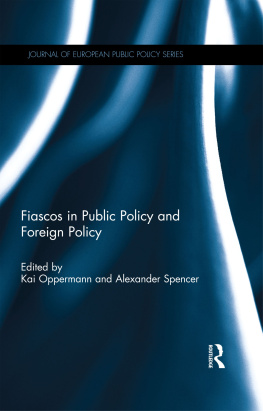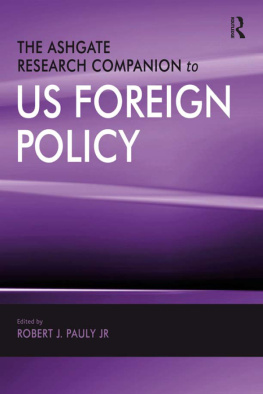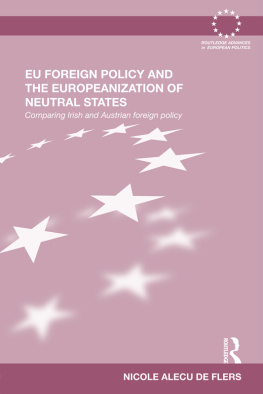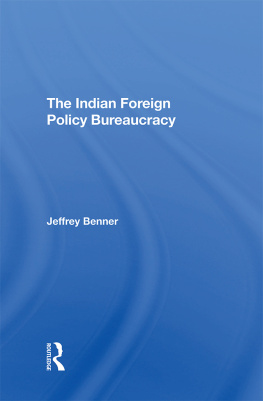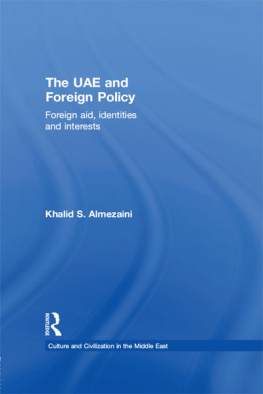Drugs and Foreign Policy
Drugs and Foreign Policy
A Critical Review
Edited by
Raphael F. Perl
First published 1994 by Westview Press
Published 2018 by Routledge
52 Vanderbilt Avenue, New York, NY 10017
2 Park Square, Milton Park, Abingdon, Oxon OX14 4RN
Routledge is an imprint of the Taylor & Francis Group, an informa business
Copyright 1994 by Taylor & Francis
All rights reserved. No part of this book may be reprinted or reproduced or utilised in any form or by any electronic, mechanical, or other means, now known or hereafter invented, including photocopying and recording, or in any information storage or retrieval system, without permission in writing from the publishers.
Notice:
Product or corporate names may be trademarks or registered trademarks, and are used only for identification and explanation without intent to infringe.
Library of Congress Cataloging-in-Publication Data
Drugs and foreign policy: a critical review / edited by Raphael F.
Perl.
p. cm.
Includes bibliographical references.
ISBN 0-8133-8786-8 (hard)
1. Narcotics, Control ofUnited States. 2. Narcotics, Control
ofInternational cooperation. 3. United StatesForeign
relations1989- . I. Perl, Raphael F.
HV5825.D7875 1994
363.4'5'0973dc20 93-45314
CIP
ISBN 13: 978-0-367-01193-2 (hbk)
"There is no foreign policy issue short of war or peace which has a more direct bearing on the well-being of the American people."
Former Secretary of State James A. Baker III
International narcotics control poses complex challenges and dilemmas for policymakers. Efforts to greatly reduce the flow of illicit drugs from abroad into the United States have so far not succeeded. There have been tactical victories: Seizures of drugs, assets, and major traffickers have increased notably; and efforts of the international community have gained momentum and maturityforcing traffickers to respond defensively rather than concentrate on expanding markets. Most important, illicit drug use in the United States has stopped growing and, according to some indicators, may be declining. We have learned much, yet over the past decade worldwide production of illicit drugs has increased dramatically: Opium and marijuana production has roughly doubled, and coca production tripled.
Despite a national political resolve to deal with the drug problem, serious contradictions regularly appear between U.S. anti-drug policy and other policy goals and concerns. U.S. narcotics policy seeks reduction of the supply of illicit drugs to the United States and reduction of user demand within the United States. On the other hand, important aspects of U.S. foreign policy aim at promoting the political and economic stability of U.S. friends and allies and avoiding excessive involvement in their internal affairs. Pursuit of anti-drug goals can undermine foreign policy interests and bring political instability and significant economic loss to countries where narcotics production has become entrenched economically and socially. Drug supply interdiction programs and systematic U.S. efforts to facilitate the international movement of goods, people, and wealth are often at odds. U.S. international narcotics policy requires cooperative efforts by many nations and must operate within the context of their perspectives and priorities as well as within the context of competing U.S. foreign policy goals.
The contributors to this volume examine U.S. foreign drug policy, its origins, themes, implementation, and prospects for success. Through perspectives of leading authorities in government, academia, and the private sector, central issues of ongoing concern are analyzed.
Raphael F. Perl
The Global Drug Phenomenon: Lessons from History and Future Challenges
David F. Musto
Global efforts to curb illegal traffic in dangerous drugs are front-page news and televised features in most lands. Nations patrol their borders with ships and inspect visitors who are suspected of carrying contraband. The United States spends billions of dollars annually in an attempt to interdict opium and opiates from Asia and cocaine and marijuana from South and Latin America. Agreements between nations and overall supervision of control treaties by the United Nations are the subject of daily comment in newspapers. The crusade includes the efforts of thousands of government officials across the world.
The energy and money devoted for much of this century to combatting drug trafficking is impressive. Yet, from the Shanghai Opium Commission of 1909 to the Vienna Anti-Drug Trafficking Convention of 1988 those most concerned about drugs have complained about frustration in achieving international consensus against drug use. Americans have been particularly dismayed by the slow pace of other nations attaining the strict regulation and policing promoted by the United States. American attitudinal change, though, has not been particularly swift: both in the 1880s and the 1960s it has required decades to move from a broad toleration of drugs to later intolerant stands which are then firmly recommended to the rest of the world.
In 1906 the United States did set in motion the global anti-narcotic movement. In that year the United States extended invitations to a meeting in Shanghai that would consider ways to help China in its campaign against opium. Never before had the major powers been convened to consider the question of narcotics traffic. The United States was acting in a brief window of diplomatic opportunity between the end of the Russo-Japanese War in 1905 and the explosion of August 1914. During those few years, nothing totally obstructed discussion or even cooperation between major nations which had recently been at war and would soon, sadly, be caught up in the First World War. In addition, China and Britain had adopted new and energetic anti-narcotic policies that prepared the way for the American initiative. Finally, the push of American domestic antagonism toward opiates and cocaine, and the pull of needing a solution to the smuggling of opium into the newly acquired Philippines, created the impetus for convening the International Opium Commission at Shanghai.
The circumstances of an institution's creation can stamp the character of its actions far into the future and this is certainly the case with the international crusade against dangerous drugs. The multiple motivations of the United States for inviting other powers to convene in Shanghaiand of the nations that acceptedcan be found again with variations and shifting emphases over a history of drug policy extending more than eight decades. Motivations ranged from furthering economic interests, to defacing the image of rivals, to promoting other national goals such as national security. Nations do, of course, wish to control drug use and curb domestic drug abuse for moral, public health and law enforcement reasons, but the simple desire to stop the flow of drugs has rarely stood alone as a motivating force, while the declaration of an unequivocal anti-drug stance has often screened contradictory actions.
Examining the context of the Shanghai Commission and focussing narrowly on the United States, we can see that the elements of American action were quite complex. The U.S. government decided in 1905 that opium usewhich had been sanctioned in the Philippines by a Spanish opium monopoly prior to 1898must stop except for strictly medicinal purposes. This chiefly meant an end to legal purchase of smoking opium. Yet to stop smuggling the United States had merely one ship assigned to patrol the enormous Philippine archipelago. International control of opium would be needed to solve this smuggling problem.


